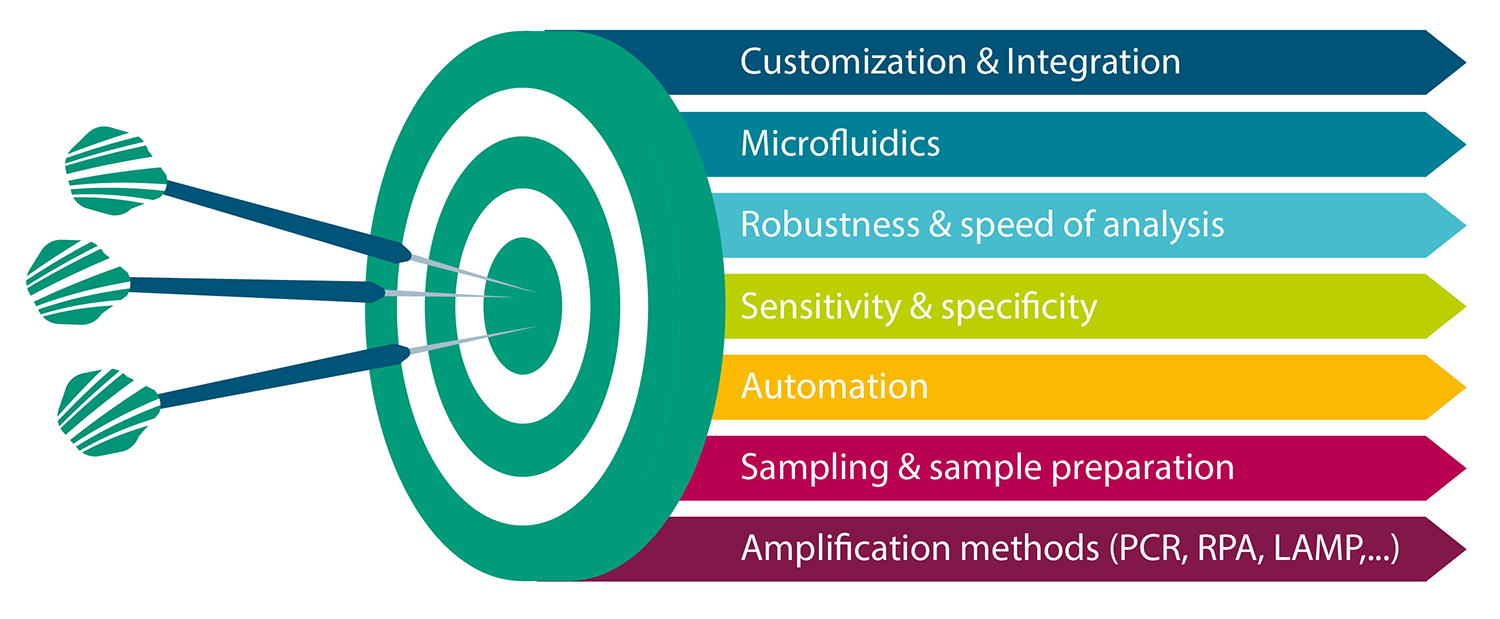Which nucleic acid amplification methods can be implemented microfluidically?
In principle, all common amplification methods can be considered for transfer from a conventional to a microfluidic system. Current projects at the Fraunhofer IMM are focusing on RT-qPCR and qRPA on-chip, in both single and multiplex approaches.
Which targets can be detected? Which samples can be analyzed?
Using microfluidic-based nucleic acid amplification technologies, freely selectable sections of any DNA strand can be amplified and detected in a highly specific manner. In principle, all samples containing cells from animals, plants, fungi or microorganisms, or cell-free nucleic acid, can be used. Research at the IMM focuses on strategies for reducing, simplifying and automating the necessary sample preparation steps.
Which application examples have been investigated so far? What is the maturity level of the systems developed to date?
A platform prototype for automated RT-PCR adapted to SARS-CoV-2 detection was developed at the IMM. In collaboration with the Institute of Virology at the University Medical Center Mainz, several 100 patient samples were examined with regard to diagnostic performance. The system has TRL 6 on the threshold of product development. In a current joint project funded by the Federal Ministry of Education and Research, Fh scientists are working with partners from academia and industry on a system for quantitative isothermal "on-chip" amplification of cell-free DNA. This project includes an early clinical study in collaboration with the Department of Anesthesiology at the Mainz University Medical Center.
 Fraunhofer Institute for Microengineering and Microsystems IMM
Fraunhofer Institute for Microengineering and Microsystems IMM
